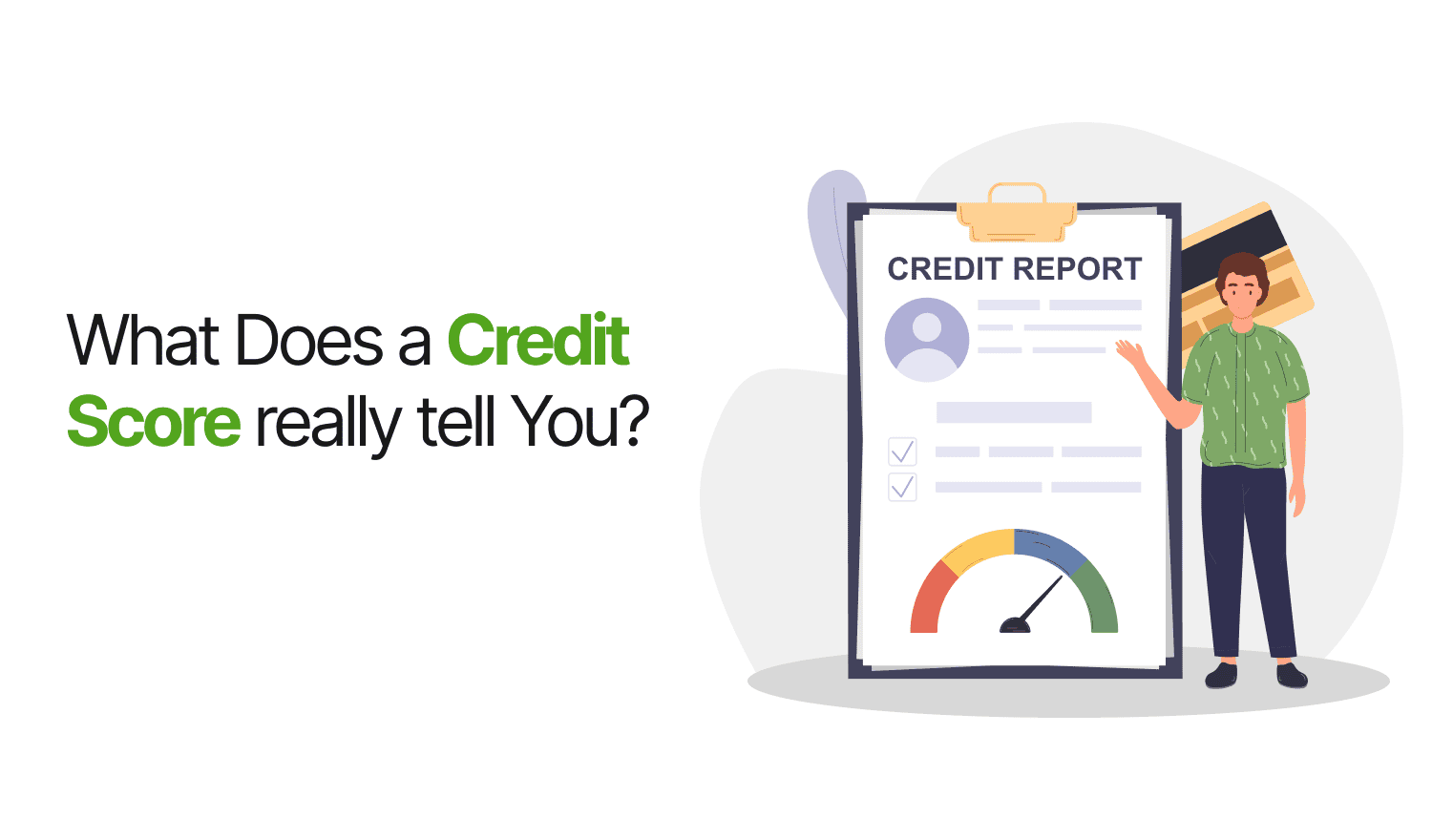What Does a Credit Score Really Tell You?

Last Updated : Jan. 30, 2025, 5:18 p.m.
A credit score is a three digit number in the range of 300 to 900, representing your creditworthiness. Credit scores are given by 4 credit bureaus in India namely Equifax, TransUnion CIBIL, Experian, and CRIF High Mark. It is assigned to individuals based on various factors and primarily the repayment history. Thus, the score depends on how you manage your debts. Let us now understand the significance of various credit scores and why you have got such scores.
Different Range of Credit Scores and their Meanings
Credit scores can be split into the following ranges.
- Above 800
- 750 to 800
- 700 to 750
- 600 to 700
- 300 to 600
- 0 to -1
All these scores have different meanings and are given due to varied reasons.
What does a Credit Score Above 800 mean?
A credit score of more than 800 is an excellent one and can help you grab exciting credit deals such as low-interest rate personal loans, credit cards with exciting cashback and discount offers, better loan terms, etc. This score means that you have paid your debts on time, utilized the debt smartly, and ensured a near-perfect credit utilization ratio. Keep up the good work to maintain this score and get rewarded with even better credit deals.
What Does a Credit Score of 750-800 Mean?
A credit score of 750 to 800 is considered very good in the eyes of lenders and can result in fast loan approvals and disbursals along with exciting credit cards. You will be able to negotiate with lenders for better loan terms, lower interest rates, higher credit limits, and desired loan amounts. You will also be eligible for pre-approved loan and credit card offers. Surely, you must have worked hard in achieving such a score. You must have paid your loan EMIs and credit card bills on time while also ensuring optimum utilization of the credit limit.
Will Credit Deals be Less Exciting If You Have a Credit Score of 700-750?
Firstly, a credit score of 700-750 is considered good by the lenders, and they give approvals based on the same. Yes, the credit deals may not be that good compared to what you got for a score of more than 750 or beyond 800. But they will still be attractive for borrowers. You can get all types of loans, be it unsecured or secured. Maybe, if you keep paying your dues on time, your score will most likely be more than 750 and could even go beyond 800. However, that will require patience and perseverance while handling debts. So, display that and get rewarded.
Will I be Offered a Loan or Credit Card If My Credit Score Falls Within 600-700?
A credit score below 700 will most likely result in the rejection of personal loan and credit card applications. However, you can get a home loan albeit at a higher rate of interest. Even the option of a secured credit card against a fixed deposit is available for you. Maybe you will have missed payments for at least 3-9 months. Get your repayment record in order by paying your dues on time. In case the poor income situation is causing a payment skip or delay, speak to the lender and see what the other options are. Else, take help from your friends and relatives and pay the overdue amount. Once your income situation improves, pay off the money you borrowed from your dear ones and continue paying dues on time. Gradually, the credit score will improve.
What Happens If I Have a Credit Score of 300-600?
This is a poor credit score and could be due to loan or credit card defaults for a long duration. The situation could deteriorate fast and get worse if you don’t control it. You can go for a debt settlement to relieve yourself of the debt burden. With a debt settlement, the debt amount will be reduced so that you can pay the same. Although debt settlement is not a good option since it will go down into your credit report as ‘Debt Settled’, it is still better than being called a ‘Wilful Defaulter’. Yes, lenders will not approve unsecured loans when you apply in the future. But you can still get a secured credit card against a fixed deposit and build your credit score quickly.
What Does a Credit Score of 0 to -1 Mean?
It means you either don’t have a credit history or it’s not showing in your credit report as the history has been much older. Usually, credit records remain in your credit report for at least 7 to 10 years from your last payment. Now, you may wonder whether the lender will trust you in such a situation. Home loans and other secured loans will be granted to you. As far as personal loans are concerned, they can also be given based on a salary account relationship or if you are working in a reputed company.
Frequently Asked Questions (FAQs)